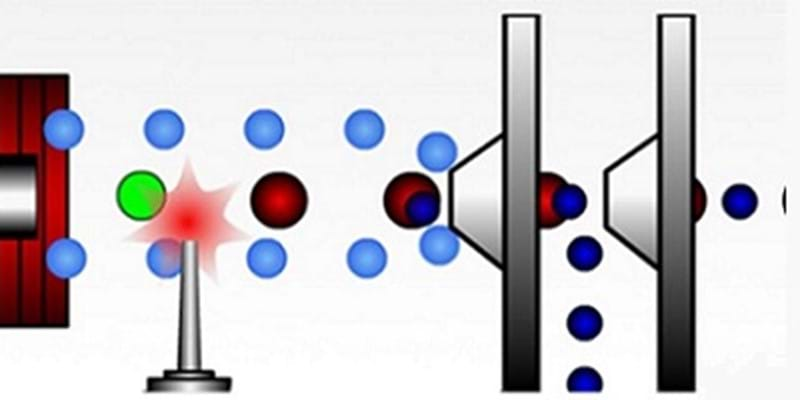Modules
Webcasts
- Test Webcast Event
- CHROMtalks - Fundamentals and Principles of Extra Column Band Broadening in UHPLC: A Tutorial
- The Rights and Wrongs of Mobile Phase Preparation Q&A
- The Rights and Wrongs of Mobile Phase Preparation
- Top 10 Tips for Selecting HPLC Column Chemistry and Dimensions
- + VIEW MORE WEBCASTS
Video Courses
Webcasts
- Everything You Need to Know About UV Detectors for HPLC
- HPLC Detectors – What, Where, When, and How
- Everything You Should Know About UV Detection for HPLC
- Tips and Tricks for Carbohydrate Analysis Using HPAE-PAD
- Conductivity Detection for Cation Chromatography - Advantages and Disadvantages of Suppression
- + VIEW MORE WEBCASTS
Modules
Webcasts
- CHROMtalks - A Generic Methodology for Streamlined Performance Monitoring of a Wide Range of Reversed Phase UHPLC Columns Over Time
- CHROMtalks - The Selectivity Landscape in Reversed-Phase LC—Using Selectivity Models to Find Columns that Are Similar, or Different
- Developing Better Methods for Reversed Phase HPLC
- Translating and Transferring HPLC Methods
- Developing Better HPLC (MS) Methods
- + VIEW MORE WEBCASTS
Video Courses
Modules
Webcasts
- CHROMtalks - Qualifying and Optimizing GC Instruments and Methods in High-Throughput Regulated Laboratories
- CHROMtalks - Detecting It All - Keeping Your Response Consistent with Common GC Detectors
- CHROMtalks - Optimizing the Inlet-to-Column Transition in Gas Chromatography
- CHROMtalks - Sample Introduction Methods for Liquid Samples in GC: Classical Volumes and Large Volumes
- CHROMtalks - The 10 Most Important Maintenance Points You Need to Know About Your Split/Splitless Injection System
- + VIEW MORE WEBCASTS
Webcasts
- CHROMtalks - GC Troubleshooting in Five Simple Pictures
- CHROMtalks - Hidden Errors and Mistakes that Make Your GC Results Look Better than They Really Are
- GC Troubleshooting - Gas Supply and Inlet Issues
- GC Troubleshooting in 20 Pictures - Part I
- GC Troubleshooting in 20 Pictures - Part 2
- + VIEW MORE WEBCASTS
Video Courses
Modules
Modules
Webcasts
- CHROMTalks Sample Preparation Series
- Everything You Need to Know About Filtration
- Troubleshooting Sample Preparation: Filtration, LLE, SLE, and SPE
- Improved Speed of Extractables Studies Using Accelerated Solvent Extraction and LC-MS
- Understanding the Mechanisms of Solid Phase Extraction
- + VIEW MORE WEBCASTS
Quick Guides
Modules
Webcasts
Video Courses
Video Courses
Webcasts
Webcasts
Modules
Webcasts
Modules
- Automatic Pipettes
- Balances
- Errors
- Laboratory Safety
- Volumetric Lab Equipment
- + VIEW MORE MODULES
Quick Guides
Webcasts
- Native and Denaturing Mode Size Exclusion Analysis of Biotherapeutics
- N-Glycan Sample Prep and Analysis Workflows for Screening and Characterization of Biotherapeutics
- Purification and Analysis of Synthetic Peptides: The Challenges of Method Development
- The Power of LC-MS in the Characterization of Protein Biopharmaceuticals
- The Analysis of Post-Translational Modifications Using LC-MS/MS
- + VIEW MORE WEBCASTS
Quick Guides
- Demystifying Reversed Phase Column Selection for Biomolecule Analysis
- First Steps in Characterizing Biotherapeutics
- Reversed Phase HPLC for the Analysis of Biomolecules
- HILIC, IEX, and SEC for the Analysis of Biomolecules
- Selecting Columns and Initial Conditions for IEX and SEC Biomolecule Analysis
- + VIEW MORE GUIDES
Webcasts
- LC/MS MAM Analysis of Adeno-Associated Virus Particles
- CHROMtalks - Tips and Tricks for Contemporary LC Separations of Biomolecules
- In-depth Characterization of Biopharmaceuticals by Multidimensional LC-MS
- Tips to Optimize Lab Scale Oligonucleotide Purification
- High-throughput and High-resolution N-glycan Profiling Workflows Using InstantPC
- + VIEW MORE WEBCASTS
Webcasts
Modules

